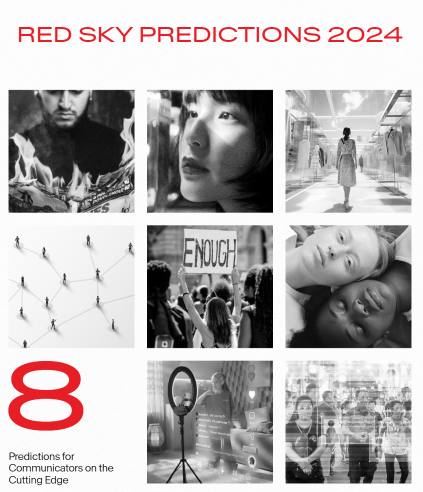Havas Red’s James Wright and Shane Russell share 2024 PR predictions
Havas Red has unveiled its 2024 PR predictions, and according to global CEO, James Wright, and Australian CEO, Shane Russell, the new year will be full of truth telling, brand authenticity, corporate purpose and ‘minfluencers’.
Launching its annual Red Sky Predictions this week, the holding company’s PR arm aims to “find the order in the chaos, and the solutions within the problems”, Wright told Mumbrella.


